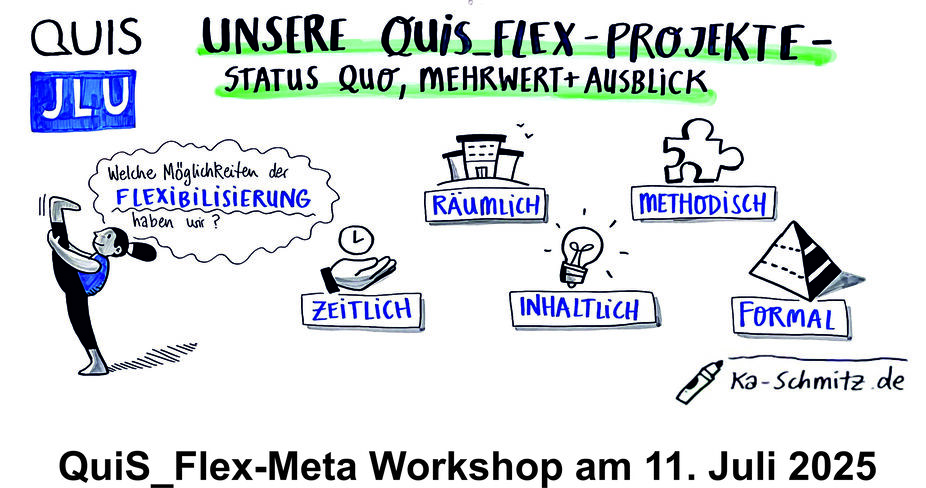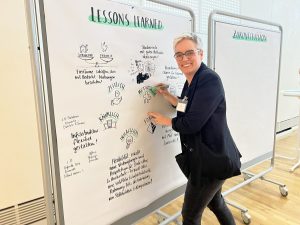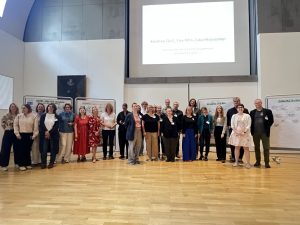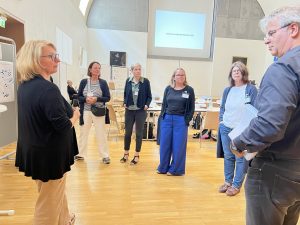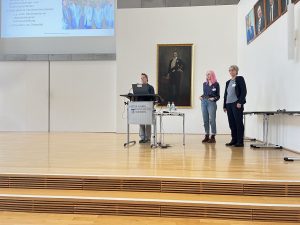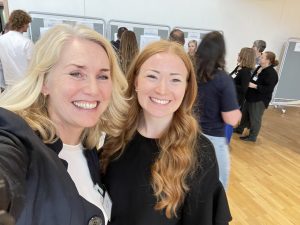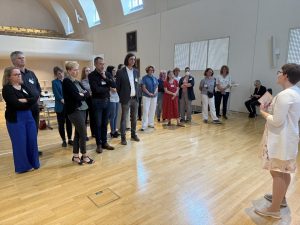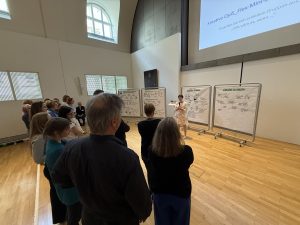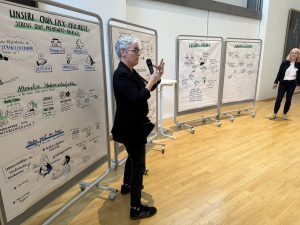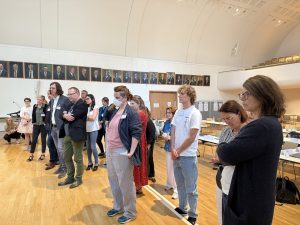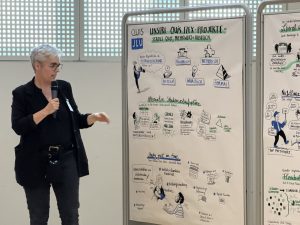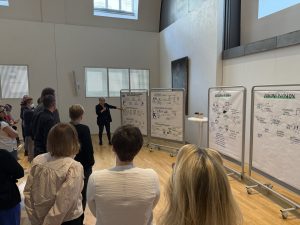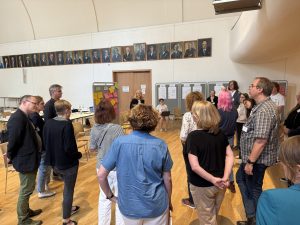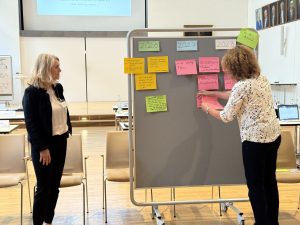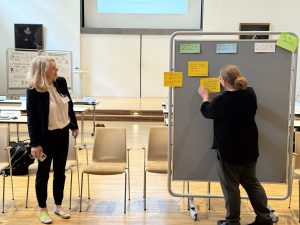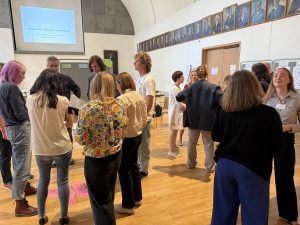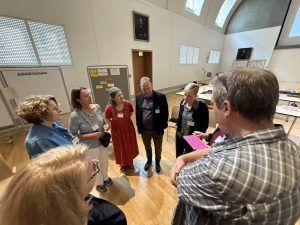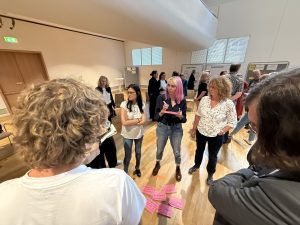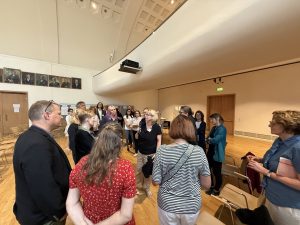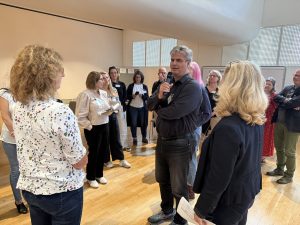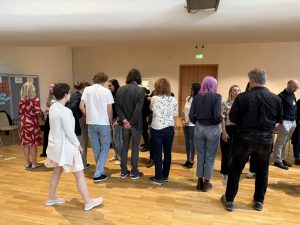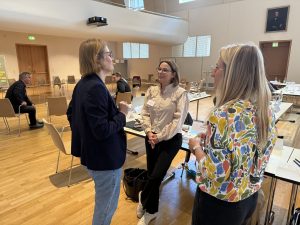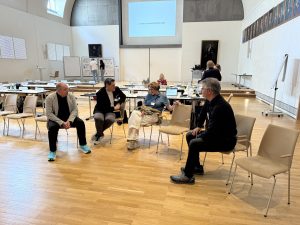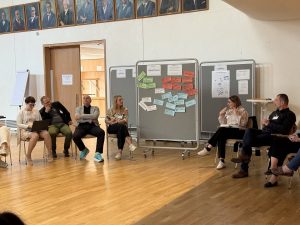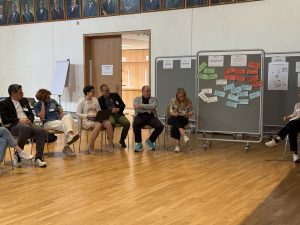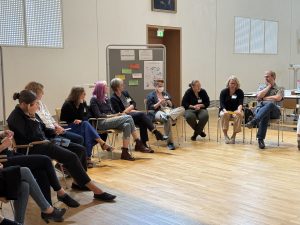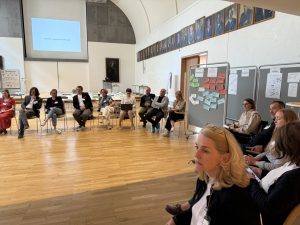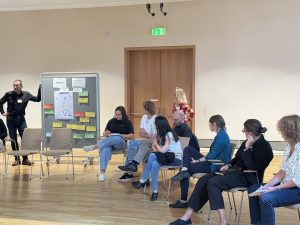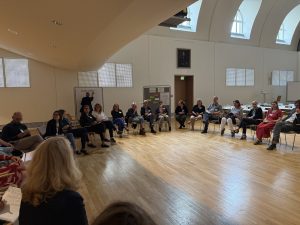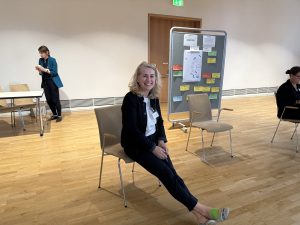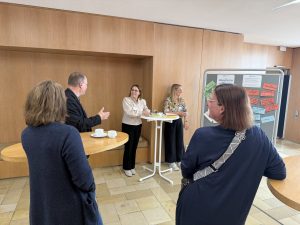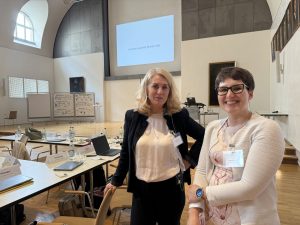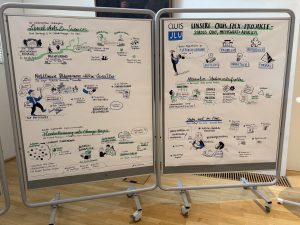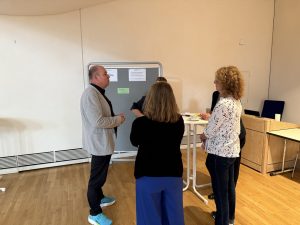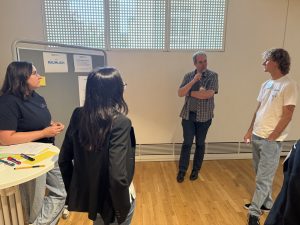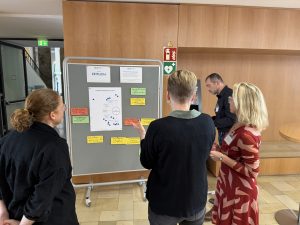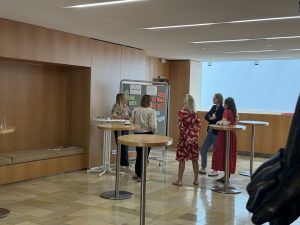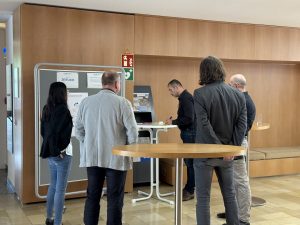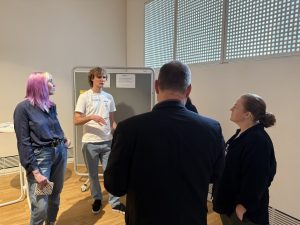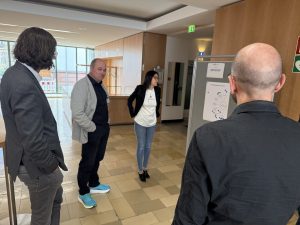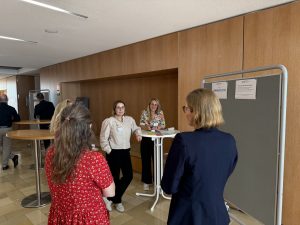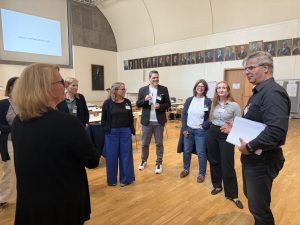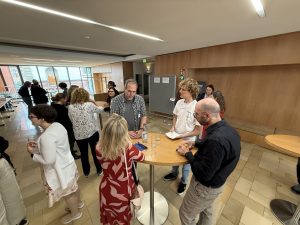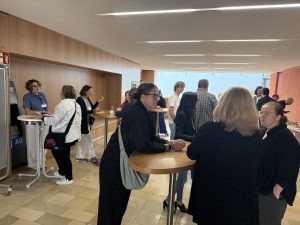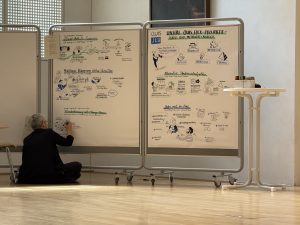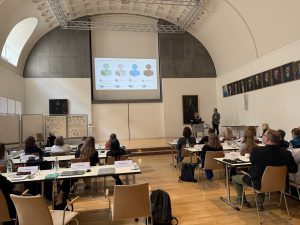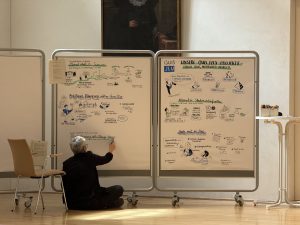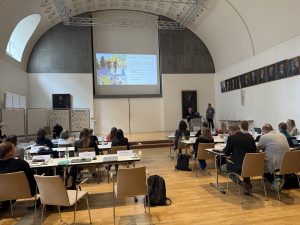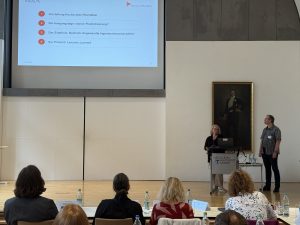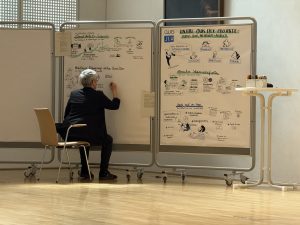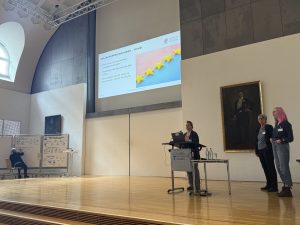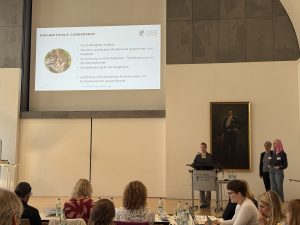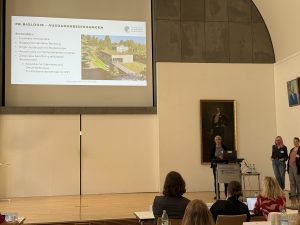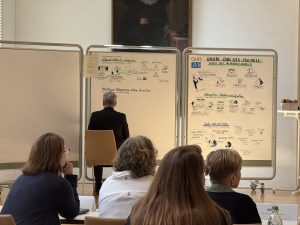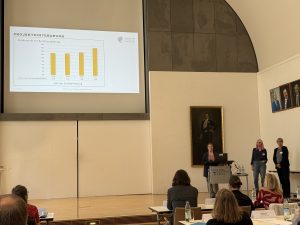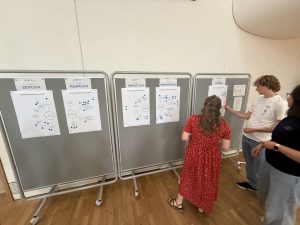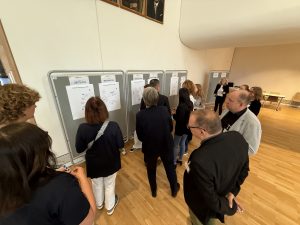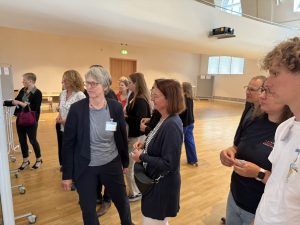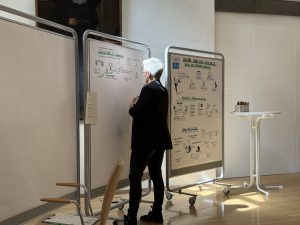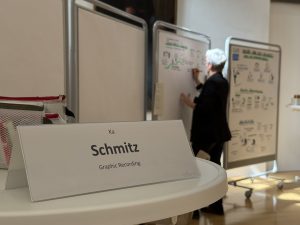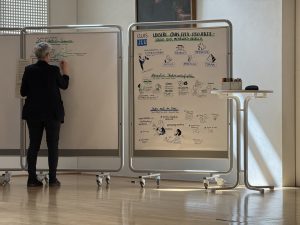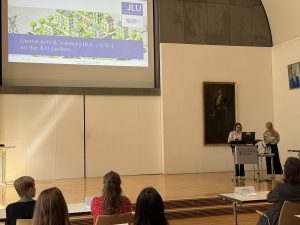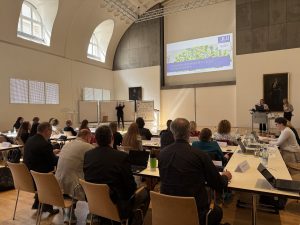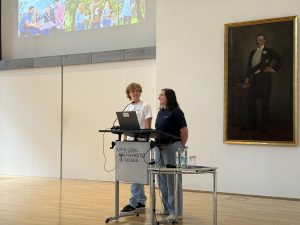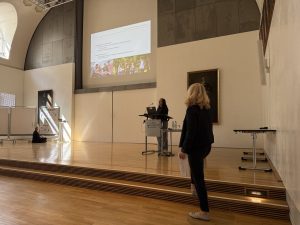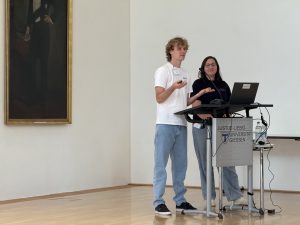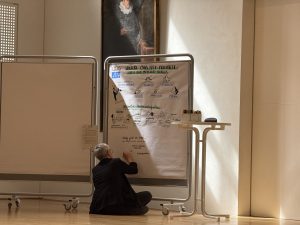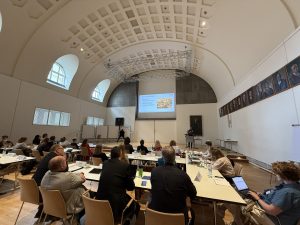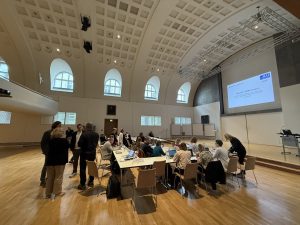Summary
QuiS_Flex: Flexibilization of studies and teaching at Hessian universities
Innovative projects and strategies for adapting to modern educational requirements
Since 2023, the Hessian Ministry of Science and Research, Arts and Culture (HMWK) has been funding so-called QuiS_Flex projects at Hessian universities, aiming to make studies and teaching more flexible. The goal is to address the increasingly heterogeneous student body and demographic change. On July 11, 2025, Prof. Dr. Alexander Goesmann, Vice President for Studies and Teaching, welcomed representatives from Hessian universities and the HMWK to the workshop "Our QuiS_Flex Projects – Status Quo, Added Value, and Outlook." He emphasized the crucial importance of adapting the educational landscape to the demographic and professional realities of students. The event was documented by graphic recorder Ka Schmitz to visually capture the key insights and discussions. Dr. Astrid-Solveig Loubal introduced the workshop and presented the five dimensions of flexibility: temporal, methodological, formal, spatial, and content-related. The aim of the workshop was to highlight how these dimensions are addressed at Hessian universities and to promote the exchange of experiences from the diverse projects.
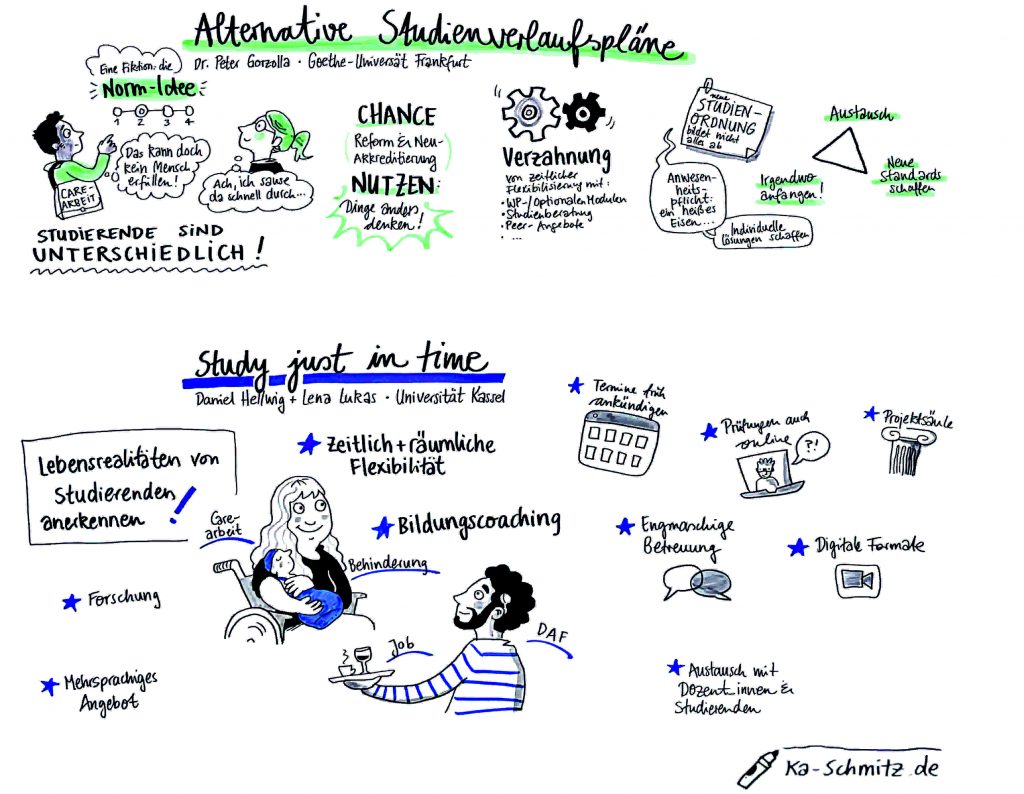
The event began with several keynote speeches that illustrated that flexibility projects are often designed to be multidimensional and that the different dimensions are closely linked, instead of focusing on just one aspect.
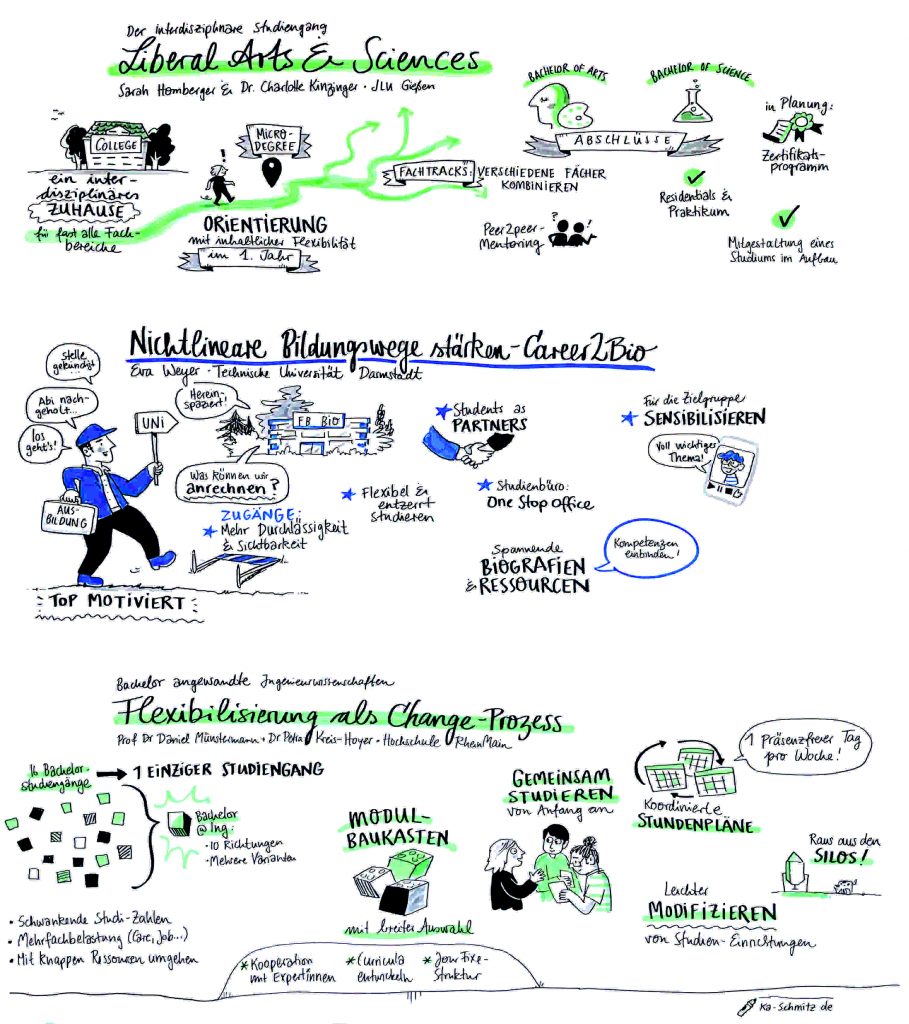
Following this, Prof. Dr. Claudia Schmeink, business psychologist and coach, moderated the interactive exchange formats. These included World Cafés, where participants shared and reflected on their own experiences with flexible working arrangements and the insights they had gained.
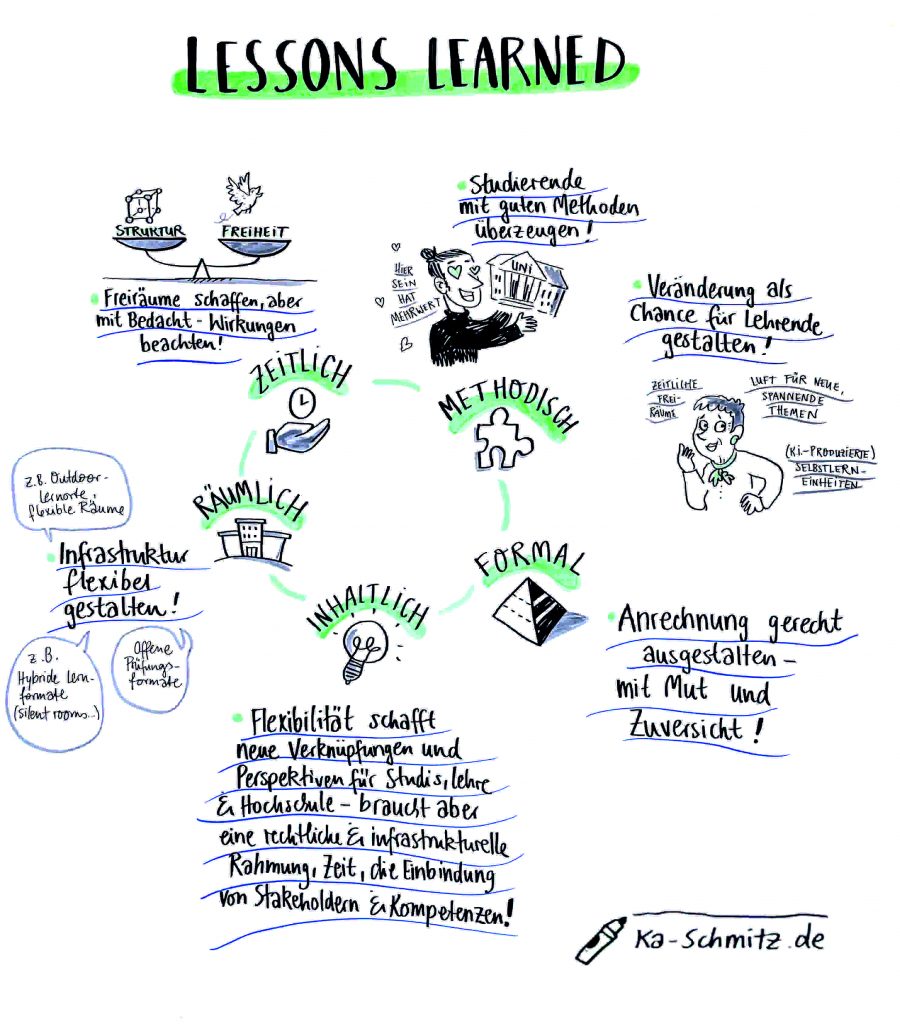
The following challenges and opportunities became particularly clear: There is a need to find a balance between clear structures and the necessary flexibility and freedom. Furthermore, it is important to evaluate the consequences and effects of changes and incorporate them into planning. The flexible design of learning spaces and the expansion of digital offerings were also identified as essential elements for enabling greater flexibility in teaching. In addition, the discussion focused on how the university, as a traditional, on-campus institution, can continue to offer clear added value to students. Restructuring to create more flexibility can also provide instructors with more freedom and create space for new course content. However, projects aimed at increasing flexibility often face legal and infrastructural challenges that require a shift in thinking. The recognition of externally acquired qualifications was also discussed. A phased approach to recognition was considered an effective way to build trust and develop a fair and effective system.
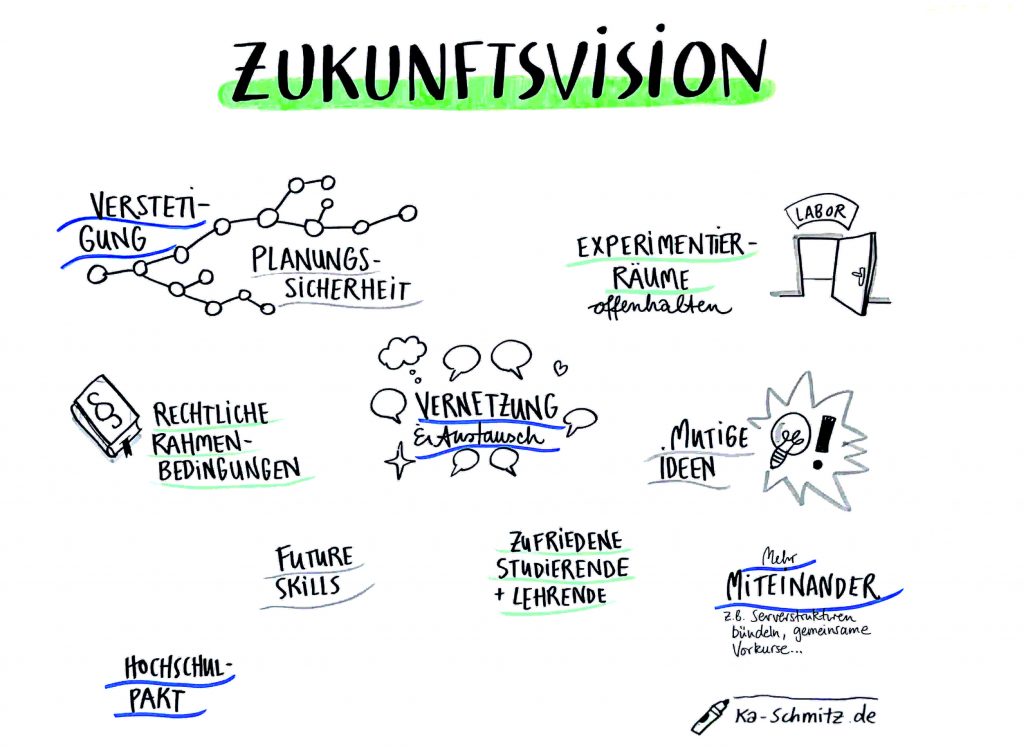
At the conclusion of the workshop, participants gathered their wishes for the future: They expressed a desire for more intensive collaboration among Hessian universities, more flexible framework conditions, and greater financial support for successful projects. Promoting innovation and openness to experimentation were considered crucial for making teaching and learning even more flexible and future-oriented. Regular exchange between universities and the expansion of inter-university solutions, particularly in the area of digitalization, are intended to further advance this increased flexibility.
The workshop impressively demonstrated that greater flexibility in higher education is not only necessary but also achievable. The presented projects and intensive discussions showed that much can be accomplished through collaboration, exchange, and innovation. Hessian universities are well on their way to actively shaping the future of higher education.
Workshop program – July 11, 2025
agenda
| 10:00 a.m | greeting |
| 10.15 a.m. | Project “Alternative Study Plans” Dr. Peter Gorzolla (Goethe University Frankfurt) |
| 10:40 a.m | Study Just in Time: Development of temporally and spatially flexible curricular study elements. M.Sc. Dipl.-Inf. Hans-Martin Pohl (Fulda University of Applied Sciences) |
| 11:05 a.m. | Diversity and flexibility in studies: The interdisciplinary Bachelor's degree program "Liberal Arts & Sciences" at Justus Liebig University Giessen Sarah Homberger and Dr. Charlotte Kitzinger (Justus Liebig University Giessen) |
| 11:25 a.m | Our experiences with the flexibility dimensions |
| 11:30 a.m | Coffee break |
| 11:45 a.m | Strengthening non-linear educational pathways – Career2Bio for greater permeability and visibility Eva Weyer, PD Dr. Ulrike Homann and Ricarda Seiler ( Technical University Of Darmstadt ) |
| 12:10 pm | Bachelor of Applied Engineering Sciences at RheinMain University of Applied Sciences – Flexibility as a Change Process Prof. Dr. Daniel Münstermann and Dr. Petra Kreis-Hoyer (RheinMain University of Applied Sciences) |
| 12.30 p.m. | Lunch break |
| 1:15 p.m. | Lessons Learned World Café |
| 2:45 p.m | Coffee break |
| 3:05 PM | Our QuiS_Flex journey |
| 3:20 p.m | Creative QuiS_Flex mini future vision |
| 3:50 p.m | Results in the picture Ka Schmitz |
| 3:55 p.m | Outlook, thanks and farewell |
Contact person
Dr. Astrid-Solveig Loubal , coordination quis_flex-meta
